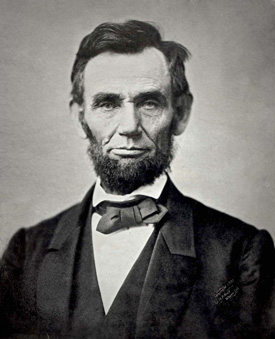
Masur is a cultural historian who has written books, reviews and essays on subjects ranging from Bruce Springsteen to capital punishment to baseball. The Civil War and American race relations, however, are recurrent themes in his work. “I believe in the world-in-a-grain-of-sand theory,” Masur says. “I take discrete moments in history and unpack them to tell a larger story.” Rutgers Today recently sat down with Masur to talk about Lincoln, the Emancipation Proclamation and their place in American history and culture.
Rutgers Today: What did the Emancipation Proclamation do?
Louis P. Masur: The Emancipation Proclamation freed the slaves in rebel-held areas of the Confederacy. It excluded those places that had come under Union control as well as the slaves in the four border slave states that had remained in the Union. Of some 4 million slaves, it applied to approximately 3.2 million. Unfortunately, we have lost our appreciation for the momentousness of the act. Lincoln’s reputation as “Great Emancipator” declined in the mid-20th century as leaders of the civil rights movement began to question the results of freedom and doubt Lincoln’s motives. But in 1863, Frederick Douglass understood that the Proclamation deserved comparison to the Declaration of Independence. Douglass said, “The fourth of July was great, but the first of January . . . even greater.”
Rutgers Today: Why did Lincoln wait until nearly two years into the war to act against slavery?

Louis P. Masur: As president, he did not have the constitutional authority to attack slavery, which was governed by state laws. But as commander in chief he employed the doctrine of military necessity that allowed him to act. Freeing the slaves was both a war measure and an act of justice in its own right. It was Lincoln’s concern about his constitutional grounds that led him to work so hard for the 13th Amendment, as depicted in Spielberg’s film.
Rutgers Today: Did Lincoln’s ideas change over time?
Louis P. Masur: Yes. In the preliminary Emancipation Proclamation, he supported the voluntary colonization of blacks to other countries, but not in the final Proclamation. He had also opposed authorizing the enlistment of black soldiers, but he called for it in the Emancipation Proclamation. Lincoln would continue to defend his actions and come in time to support limited suffrage for black men.
Rutgers Today: What did you think of Spielberg’s Lincoln?
Louis P. Masur: There are a few historical hiccups that grate on a historian’s sensibilities. The film might have more fully realized African-American characters – Frederick Douglass, for instance. There’s a scene where Lincoln slaps his son, Robert, which would have been out of character for him. But this is a Hollywood blockbuster, not a documentary. The film transports us to 1865, almost literally, complete with badly lit rooms and streets. Spielberg’s accomplishment is to present the man, not the icon. We see Lincoln as a crafty politician and a loving father, a human being who struggled yet found a way to succeed.
Media Contact: Ken Branson
732-932-7084, ext. 633
E-mail: kbranson@ur.rutgers.edu